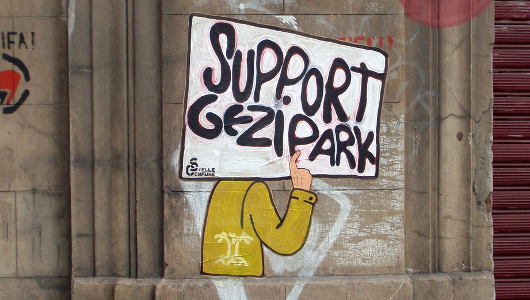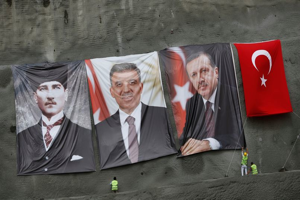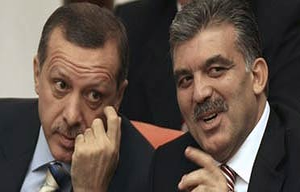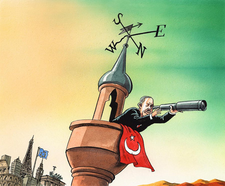What the Columnists Say
The Taksim/Gezi Park protests, and their violent dispersal by the police in May-June, continue to cast a deep shadow over the political life in Turkey, and the political commentaries reflect this fact. Notably, the protests and their handling by the AKP government has provided new ammunition in the ongoing power struggle between the ruling AKP and the movement of the Islamic preacher Fethullah Gülen, deepening their mutual distrust. Mehmet Baransu in the daily Taraf reports that many in the leadership of the AKP think that the Gülen movement was behind the Gezi protests. Meanwhile, it is noted that the conservative business community in Anatolia, which has been instrumental in bringing the AKP to power, is concerned that the confrontational policies of the government – at home and abroad -- are going to harm the stability and economic development of Turkey. Commenting the verdicts in the Ergenekon trial, Murat Belge, a leading liberal intellectual, expresses doubts that the trial has touched anything but the “tip of the iceberg”, while Fuat Keyman, another liberal commentator, speculates that Prime Minister Erdoğan must in fact be deeply troubled by the verdicts that contribute to the perception abroad that democracy in Turkey is in retreat.
Erdogan, the AKP and the Repercussions of the Gezi Park Protests
by Gareth Jenkins (vol. 6 no. 13 of the Turkey Analyst)
On July 3, 2013, it was announced that the First Administrative Court in Istanbul had cancelled the Taksim Square and Gezi Park redevelopment project that had triggered the unprecedented anti-government protests that have been sweeping Turkey since late May. The verdict has still to be ratified by the higher court known as the Danıştay, or Council of State. Whatever the Danıştay’s decision, there can be little doubt that the protests have already permanently changed the Turkish political landscape.

Erdogan Unhinged: The Turkish Power Struggle after Taksim
by Svante E. Cornell (vol. 6, no. 12 of the Turkey Analyst)
The popular upheavals in Turkey, and the harsh government crackdown on them, have reshuffled the power struggle that was already ongoing within Turkey’s Islamic conservative movement. Prime Minister Erdoğan’s ambitions to remake Turkey into a presidential republic have been dashed for the foreseeable future. While he remains the undisputed leader of both the country and the movement, none of the options facing him are particularly appealing. Taksim may well mark the beginning of the end of Erdoğan’s single-handed domination of Turkish politics.

The Diverging Paths of Abdullah Gül and Tayyip Erdogan
by Svante E. Cornell (vol. 6, no. 8 of the Turkey Analyst)
Turkey’s Prime Minister Recep Tayyip Erdoğan hardly hides his ambition to accede to the presidency under a new constitution providing for a presidential system. Yet his ambition for a further concentration of power in his own hands is beginning to generate unlikely counter-forces. Chief among these is the growing coordination among other forces on the Turkish political spectrum – including the CHP, the Fethullah Gülen movement, and president Abdullah Gül. The latter, in particular, is beginning to more vocally distance himself from Erdoğan in both domestic and foreign affairs. While it may be too early to talk of a rupture, Gül is becoming an important counter-balance to Erdoğan.

How Serious is Erdogan about Joining the SCO Instead of the EU?
by Halil M. Karaveli (vol. 6, no. 2 of the Turkey Analyst)
Recep Tayyip Erdoğan’s talk of joining the Shanghai Cooperation Organization and abandoning the pursuit of EU membership cannot be dismissed as loose talk, but neither does it herald a major strategic pivot. The Turkey of Erdoğan will continue to privilege and nurture its relations with the West, above all with the U.S., Erdoğan’s anti-Western prejudices and sentiments notwithstanding. And Erdoğan’s embrace of a club of autocrats should not obscure the fact that a very significant portion of the population of Turkey still endorses the goal of EU membership, and that holds true not least among the voters of the ruling Justice and Development Party (AKP).








